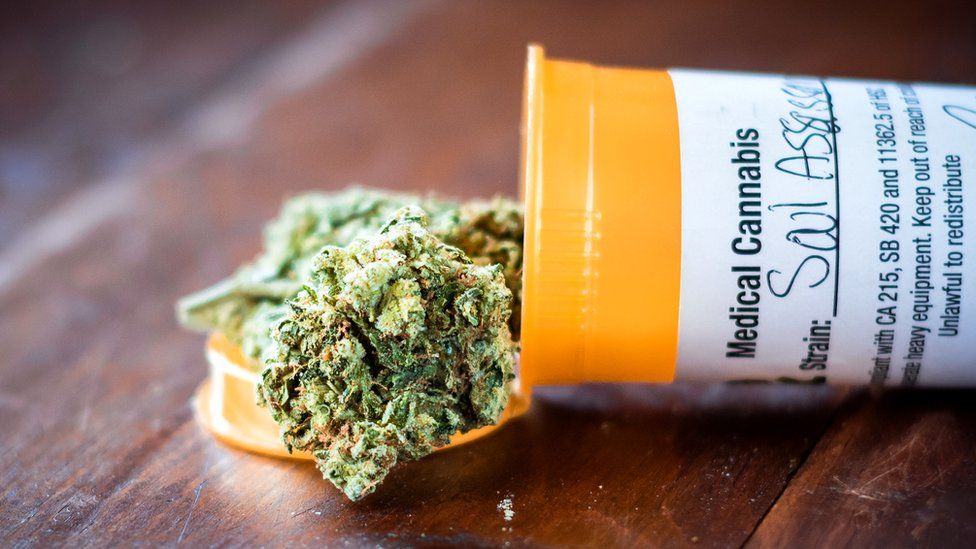Visit a Trusted Medical Cannabis Clinic for Specialist Support
Visit a Trusted Medical Cannabis Clinic for Specialist Support
Blog Article
Shedding Light on What Medical Cannabis Can Heal: a Comprehensive Analysis of Its Restorative Characteristics
In recent years, there has been an expanding interest in the healing potential of clinical cannabis. While anecdotal proof abounds, an extensive exam of the clinical data regarding the performance of medical cannabis in treating these problems is necessitated.
Persistent Discomfort Monitoring
Chronic discomfort administration stays a vital aspect of clinical treatment, demanding a comprehensive approach for efficient therapy. In recent years, medical cannabis has become a possible restorative alternative for people struggling with persistent pain conditions. The endocannabinoid system, which plays a critical role in discomfort modulation, has been targeted by cannabis-based therapies to alleviate symptoms and improve lifestyle for individuals.

Additionally, clinical marijuana provides an appealing choice for patients who experience unbearable negative effects from traditional discomfort medicines. Its ability to attend to discomfort with a various device makes it a useful addition to the arsenal of therapies offered for persistent pain monitoring.
Epilepsy Treatment Potential
Clinical cannabis has shown promising possibility in the therapy of epilepsy, providing a novel therapeutic method for managing seizures in individuals. Epilepsy is a neurological disorder defined by reoccurring seizures, impacting people of every ages. Standard treatments for epilepsy consist of antiepileptic medicines, yet these medications may not be effective for all people and can have substantial side effects.
Study on the usage of clinical cannabis for epilepsy has exposed motivating results. Cannabidiol (CBD), a non-psychoactive compound discovered in cannabis, has been particularly highlighted for its anticonvulsant homes. Studies have revealed that CBD can reduce the frequency and severity of seizures in people with treatment-resistant forms of epilepsy, such as Dravet disorder and Lennox-Gastaut syndrome.
In Addition, the FDA has accepted a CBD-based drug, Epidiolex, for the therapy of seizures associated with these serious forms of epilepsy. This turning point underscores the expanding recognition of clinical cannabis as an important healing choice for handling epilepsy and offers wish for individuals that have not responded well to traditional therapies.
Queasiness Relief Benefits
The alleviation of queasiness via making use of marijuana has been significantly identified for its healing advantages in numerous medical conditions. Nausea or vomiting and throwing up are typical signs experienced by individuals undertaking chemotherapy, those with food poisonings, and people with chronic discomfort problems. Medical marijuana, with its active substances such as THC and CBD, has revealed guarantee in giving relief from nausea.

Additionally, medical cannabis offers a natural choice for individuals that do not react well to standard anti-nausea medicines or that experience serious side results from these medications. People undergoing chemotherapy, in specific, have actually reported substantial enhancements in their high quality of life when using cannabis to take care of nausea. As research study in this field continues to grow, clinical cannabis is significantly being taken into consideration as an important option for nausea relief in numerous medical setups.
Anxiety Decrease Effects
Researches have actually demonstrated the possibility of marijuana in lowering anxiousness symptoms via its communication with the endocannabinoid system. The endocannabinoid system plays a vital role in regulating feelings, including stress and anxiety, by keeping homeostasis in the body. Cannabinoids in cannabis, such as THC and CBD, engage with the endocannabinoid receptors in the mind, specifically the CB1 and CB2 receptors, to modulate anxiety-related reactions.

Patients with conditions like generalized anxiety condition (GAD), social anxiety problem, and trauma (PTSD) might take advantage of the anxiolytic residential properties of marijuana (Medical Marijuana Card Clinton MS). However, further research is required to determine ideal does, delivery techniques, and long-term impacts more helpful hints on stress and anxiety monitoring.
Potential for Inflammation Control
With its recognized anti-inflammatory buildings, cannabis has actually revealed promise in potentially managing swelling within the body. Inflammation is the body's all-natural reaction to injury or infection, yet when it becomes chronic, it can add to numerous conditions such as joint inflammation, inflammatory bowel condition, and even cardiovascular disease. Research suggests that the cannabinoids located in marijuana, such as THC and CBD, can aid control the immune action and minimize inflammation.
Research studies have actually revealed that marijuana can communicate with the endocannabinoid system, which plays a critical function in regulating inflammation. By targeting the cannabinoid receptors, cannabis compounds can modulate the immune response, causing a decrease in swelling levels. This makes cannabis a prospective prospect for managing inflammatory conditions where traditional therapies have actually failed.
Moreover, cannabis-derived items like CBD oil have actually gained appeal for their anti-inflammatory homes, with several people utilizing them as a natural treatment for problems connected with inflammation. While even more research study is needed to completely understand the systems behind marijuana's anti-inflammatory effects, current searchings for reveal promising outcomes for the potential use of clinical cannabis in regulating inflammation.
Final Thought
In verdict, clinical cannabis has actually revealed appealing restorative homes in managing persistent discomfort, dealing with epilepsy, eliminating nausea or vomiting, decreasing anxiety, and controlling inflammation. Its possible advantages in numerous medical problems highlight the importance of further study and exploration into its medical use. The proof suggests that medical marijuana might be a beneficial alternative treatment choice for patients seeking remedy for a series of conditions and signs and symptoms.
In current years, clinical cannabis has arised as a potential healing choice for individuals experiencing from persistent pain problems.Medical check my source marijuana has revealed appealing potential in the therapy of epilepsy, offering a novel therapeutic technique for taking care of seizures in clients. As research study in this area proceeds to expand, clinical marijuana is progressively being considered as a useful choice for nausea or vomiting alleviation in various medical setups.
In verdict, clinical cannabis has revealed appealing healing residential properties in taking care of chronic pain, dealing with epilepsy, alleviating nausea, lowering anxiousness, and managing inflammation. The proof suggests that medical cannabis could be a valuable option therapy alternative for people seeking relief from an array of conditions and signs.
Report this page